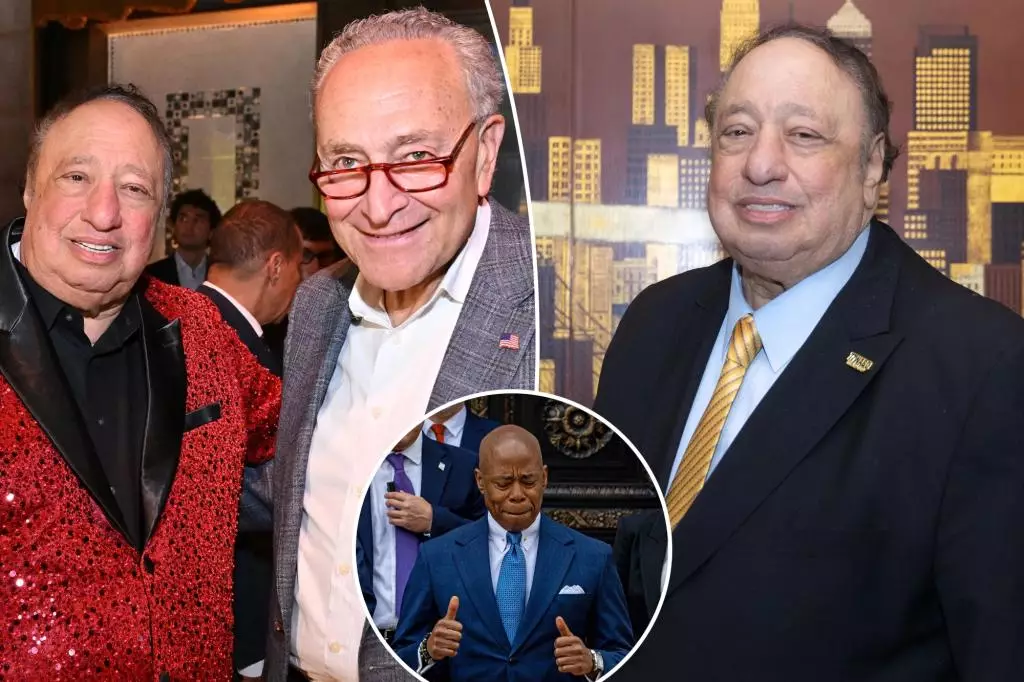The question surrounding billionaire John Catsimatidis’ intentions regarding a potential run for mayor of New York City remains tantalizingly ambiguous. His recent candid remarks to Page Six, declaring, “I’ve made no decisions yet,” reflect an ongoing internal deliberation rather than a public commitment. As the political landscape shifts, particularly following the indictment of current Mayor Eric Adams, political insiders speculate about the direction Catsimatidis might take. He hints at being motivated by his love for the city and a desire for its revival, stating, “We want to help the city. We love the city. We just want to have the city make a comeback.”
However, behind the noble rhetoric lies a troubling admission that has piqued curiosity: “You know what I’m most scared of? I might win.” This declaration does not merely hint at the complexities of campaigning; it underscores an existential anxiety that candidates often grapple with—the fear of success and the responsibilities that come with it.
Against the backdrop of his potential candidacy, the current mayor’s legal entanglements add layers of complexity to the already turbulent political climate. Eric Adams remains steadfast in his role, claiming he won’t step down despite facing charges related to a federal probe. His vow to fight charges with “every ounce of [his] strength and spirit” speaks to the resilience necessary in political life but may not alleviate mounting pressure from constituents and party leaders alike.
If Adams were to step aside, New York Governor Kathy Hochul holds the authority to appoint a replacement, potentially initiating a special election. Although pundits view this scenario as unlikely, the whispers of a shifting political tide around Catsimatidis reflect a broader anxious sentiment among party elite, especially as they gauge public sentiment against the backdrop of Adams’ ongoing controversies.
The allure of Catsimatidis as a viable candidate comes partly from his formidable business acumen and the financial ecosystem surrounding him. The tycoon reportedly receives “more than hundreds” of requests to enter the political fray. With deep roots in New York’s business and political circles—his daughter Andrea serves as chairwoman of the Manhattan Republican Party—Catsimatidis is not just an outsider. He carries substantial familial and financial resources to aid his foray into political leadership.
Moreover, he boasts about $2 billion in holdings through his Red Apple Group, which extends into various sectors including real estate, aviation, and even owning the Staten Island FerryHawks minor league baseball team. Such diversified investments render him uniquely well-suited for a leadership position in a city that faces multifaceted challenges, from public safety to economic rejuvenation.
Historically, New York City has witnessed its share of influential mayors, with figures like Rudy Giuliani and Michael Bloomberg reshaping the urban landscape through decisive leadership. However, any special election that opens following Adams’ potential exit would be nonpartisan, presenting a unique challenge for candidates to appeal to a broader electorate free of party affiliation constraints. A key hypothesis suggested by insiders is that Catsimatidis’ moderate positioning may allow him to appeal to a diverse voter base, a quality they argue is essential for addressing the complex mix of issues the city currently faces.
A political informant notes, “Catsimatidis goes in the middle… he’s a very moderate kind of guy,” asserting that his centrist views could facilitate collaboration with different political factions. This might be particularly advantageous if he were to align with national figures like Donald Trump, potentially bringing additional funding and resources into New York City’s asset pool, essential for its present safety and infrastructural needs.
While Catsimatidis has strong financial footing, his past attempt at running for mayor in 2013, where he lost the GOP primary to Joe Lhota, raises questions about his broader appeal in the current political landscape. In a time when voters are growing increasingly discerning, his approach to strategizing a successful campaign is as critical as the connections he holds. The gravity of the decision looming ahead weighs on him, as emphasized by locals’ reactions and feedback during his ongoing “listening tour.”
Whether Catsimatidis will ultimately pivot towards a mayoral bid or remain a significant yet quiet player in the city’s political future is uncertain. As he assesses public sentiment and the potential fallout from Adams’ vulnerabilities, one thing is clear: the city is experiencing a period of transition that holds numerous possibilities for its future leadership. But will Catsimatidis emerge as the champion New York City needs, or will his fears restrain him from fulfilling this potential? Only time will tell.

